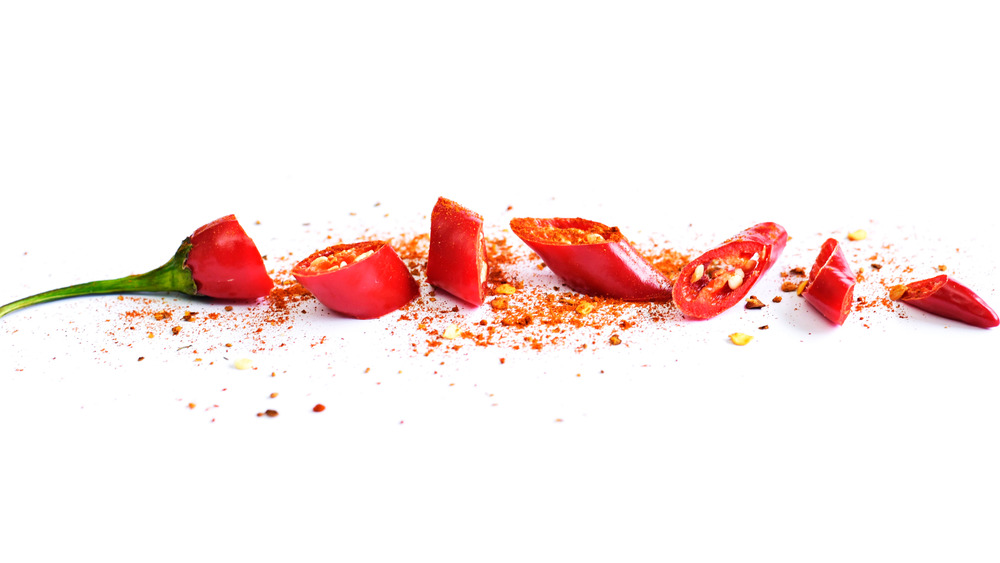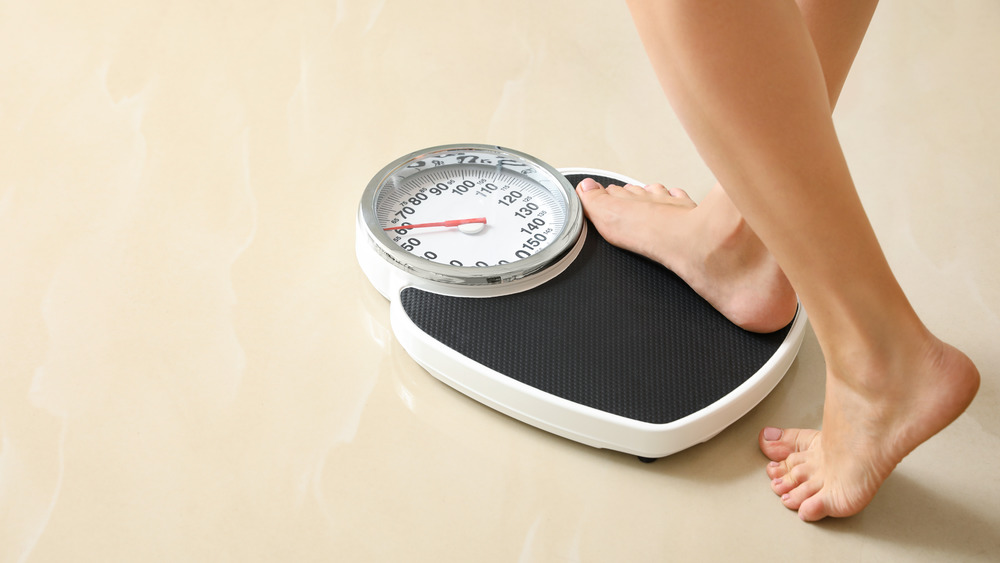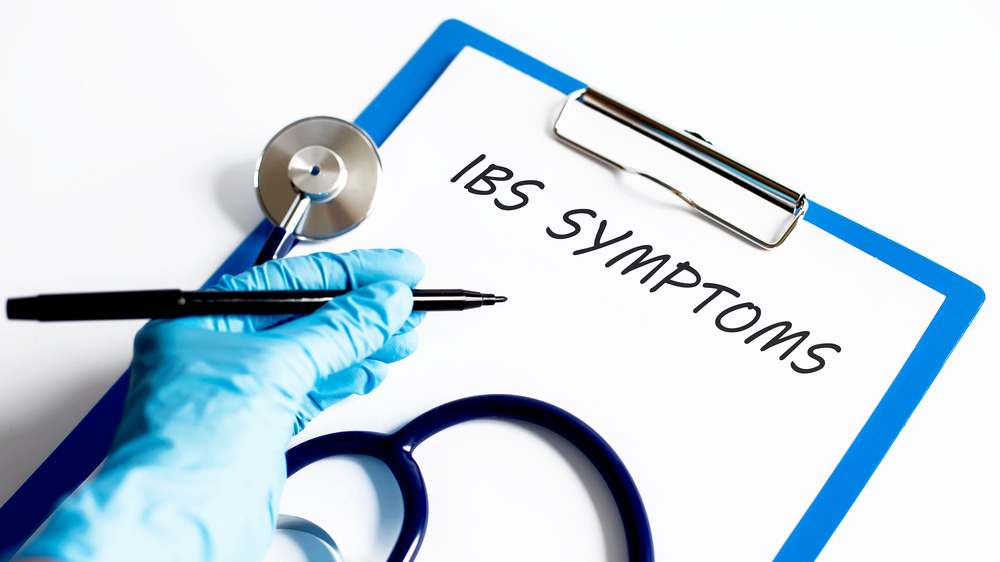Are Spicy Foods Healthy For You?
While the fact that the terms "hot" and "spicy" are used interchangeably often leads to some confusion — should you bite into a Nashville hot chicken sandwich and say "that's hot," an onlooker might well ask whether you mean the seasoning is very peppery or the chicken just came out of the fryer and burned your mouth. As it turns out, the two sensations do share certain symptoms. According to Barry Green of the John B. Pierce Laboratory in New Haven, CT (via Scientific American), "Spicy foods excite the receptors in the skin that normally respond to heat." This is why eating a super-hot pepper may cause your mouth to feel as if it were literally burning as well as make you break out in a sweat.
Despite the painful sensations they may cause, hot and spicy foods, in general, are becoming increasingly popular. While for many the appeal lies in the food challenge (you can pretend you're a guest on Hot Ones!) still others come over to the spicy side once they hear about all of the good things capsaicin can do for your body. While chile peppers undoubtedly do have their health benefits, though, it's not all upside. There are certain health risks (besides short-term suffering) that may be associated with picking peppery foods at every meal.
Hot peppers can help with weight loss
According to Healthline, several different studies have shown that chile peppers contain active ingredients that have the power to boost metabolism. In one case, people who took a capsinoid supplement for one month were able to burn 50 more calories per day. The fact that hot peppers do raise your body temperature to some extent may also help calories melt away, although it must be noted that people who eat hot stuff all the time build up a tolerance and are therefore less likely to see any great weight loss effects.
Hot peppers, however, do make your meal tastier, and therefore more satisfying, One small study found that subjects who ate red pepper with every meal reported feeling fuller, but whether or not that holds true with further research, the fact is that eating food with a little bit of taste to it will make you more likely to stick to a calorie-controlled diet than restricting yourself to food that's relentlessly bland.
Capsaicin can actually help prevent ulcers
While Chicago gastroenterologist Edwin McDonald, M.D., says that nearly all of the patients he diagnoses with ulcers are quick to blame the spicy foods they may have eaten, he points out that many studies have shown that this is not the case (via The University of Chicago Medicine). Instead, he says that capsaicin, the ingredient that packs the punch in peppers, has the effect of reducing stomach acid rather than producing excess amounts of it. In fact, he reveals that capsaicin supplements have even been prescribed for people who take NSAIDs since the latter really do cause ulcers while the former may help to keep them from forming.
Also, it may help prolong your life. A study published in a 2015 issue of The BMJ followed several hundred Chinese men and women over a span of several years and found what appeared to be a link between pepper-eating and increased longevity. As the researchers reported, "Compared with those who ate spicy foods less than once a week, those who consumed spicy foods 6 or 7 days a week showed a 14 percent relative risk reduction in total mortality."
There is, however, one caveat: the possible life-extending effects of eating spicy foods were "stronger in those who did not consume alcohol than those who did." So yes, go ahead and order the extra-hot wings, but you might want to dial back a bit on the beer you wash them down with.
Spicy food can cause some health issues
While hot stuff doesn't cause ulcers, it has been implicated in certain other gut problems. Dr. McDonald says that spicy foods can aggravate the symptoms of indigestion, and Keck Medicine of USC reports that they may actually trigger irritable bowel syndrome in some patients. They cite one particular study in which subjects who consumed spices including chili peppers and curry more than 10 times per week were more likely to suffer from IBS than those who preferred milder fare. While they don't recommend avoiding spicy stuff altogether, they do say that if these foods trigger unpleasant symptoms, then you're better off eliminating them from your diet.
Hot peppers themselves can actually cause you physical pain, apart from that temporary flare-up in your mouth. If you reheat them in a microwave, the fumes they release can burn your eyes and throat, and there was one man who suffered life-threatening injuries from retching after consuming a ghost pepper.
One type of pepper pain is so notorious it has inspired several hot sauce names that refer to pain upon using the bathroom. The cause of this may be due to a common medical problem: anal fissures. These tears in the lining of your anus might not bother you if you don't bother them, but a 2008 study published in the Archives of Gastroenterology (via PubMed) found that 81 percent of study subjects said chili pepper supplements caused them to suffer increased pain.




